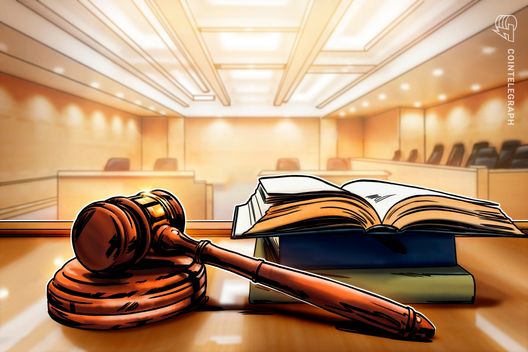

The trial of Roman Storm, co-founder of the crypto mixing service Tornado Cash, is underway in New York, with prosecutors expecting to conclude their case by July 25, 2025. Storm faces charges of money laundering, conspiracy to operate an unlicensed money transmitter, and conspiracy to violate U.S. sanctions. These charges stem from allegations that Tornado Cash was used to launder billions of dollars, including funds linked to the North Korean Lazarus Group.
Prosecutors are focusing on connecting Storm to the Lazarus Group, which was implicated in the 2022 Ronin hack. They allege that Tornado Cash was used to launder $600 million stolen in that attack, a clear violation of U.S. sanctions. Assistant District Attorney Kevin Mosley stated that Storm benefited from a "gigantic money laundering scheme" and had multiple opportunities to intervene but chose not to. If found guilty on all counts, Storm could face years in prison. The maximum possible sentence could be up to 40 years.
Storm's defense team denies any direct link between him and the alleged criminal activities. Keri Axel, Storm's attorney, emphasized that Tornado Cash is a "privacy protocol freely available to all" and that there is no evidence that Storm agreed to participate in criminal activities. The defense argues that Storm had nothing to do with the hacks and compares the case to products like Signal, cash, or even a hammer, which can be misused without implicating their creators. They contend that Tornado Cash's open-source code qualifies as protected speech and that Storm did not control user funds or knowingly enable illicit activity.
The defense team has indicated that they may call witnesses to offer testimony that includes references to high-profile kidnappings of crypto users, arguing that privacy services like Tornado Cash are necessary. Storm himself said he wasn't sure whether his legal team would have him take the stand in his defense. Prior to the trial, Storm's legal team challenged the evidence submitted by the prosecution.
The outcome of the trial could have significant implications for the decentralized finance (DeFi) and blockchain regulation. A conviction could set a precedent that criminalizes the creation of privacy-focused tools, even if they are used for legitimate purposes. Conversely, an acquittal might embolden developers to prioritize innovation over compliance, which could be risky as regulators worldwide tighten controls. Regardless of the outcome, the trial underscores the urgency for blockchain projects to embed robust compliance frameworks.
The case has sparked debate within the crypto community about whether developers should be held accountable for the misuse of their code. Some argue that blaming Tornado Cash for its misuse is like holding central banks responsible for illicit transactions involving cash. They believe that code lacks conscience or will and that sanctioning its existence or those who create it violates constitutional principles.